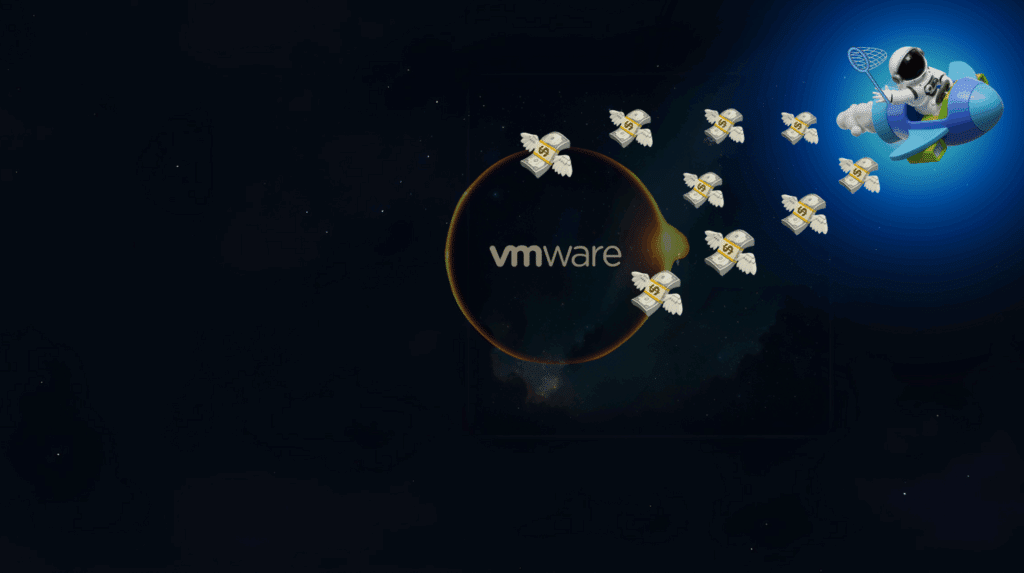Telefónica Germany Ditches Broadcom, Opts for Third-Party VMware Support

In a move that sends a clear signal to the rest of the industry, Telefónica Germany, one of the country’s largest telecommunications providers, has dropped direct VMware support from Broadcom. The company has instead signed a multi-year deal with third-party support specialist Spinnaker Support. This decision reflects the growing dissatisfaction among large enterprise customers following Broadcom’s acquisition of VMware, a deal that has been characterized by dramatic price hikes, the termination of perpetual licenses, and a forced march towards subscription-based models.
The fallout from Broadcom’s $69 billion takeover of VMware in late 2023 has been swift and severe. Almost immediately, Broadcom ended the sale of perpetual licenses, eliminated its extensive partner program, and began pushing customers towards its new, and often significantly more expensive, subscription offerings. This aggressive strategy has left many CIOs and IT leaders feeling cornered, facing massive increases in their operational budgets for what is essentially the same virtualization software they have relied on for years.
A Strategic Pivot to Third-Party Support
Telefónica Germany’s decision to partner with Spinnaker Support is a direct response to this new reality. The company operates a vast and complex IT estate supporting its critical network and business operations. Faced with what it termed “unreasonable” price increases from Broadcom, quoted at five times higher than expected, the company began exploring its options. The move to a third-party provider allows the company to continue using its existing, stable VMware environment without being forced into an expensive and disruptive subscription upgrade.
Telefónica Germany had already been using Spinnaker Support for a couple of years to provide support for its Oracle software, making it an obvious choice for VMware as well. The company made the switch at the start of 2025 when its existing support contract with VMware expired. To handle a small portion of subscription-based software, Telefónica acquired secondhand perpetual licenses to avoid prolonging contracts with VMware.
According to Holger Berndt, professional lead of software asset management at Telefónica Germany,
“We never thought to go away from VMware until Broadcom [came] up with this new solution, and we are not angry with Broadcom, but it’s not acceptable. It’s not acceptable what they’re doing at the moment, that they tell you that you are the one of the valuable customers, and then they do this.”
“They said we had to license everything,” says Berndt. “They offered a one-year subscription for the whole package, with no negotiation for about €20m. We said, ‘No, that’s not possible.’
The company now has an exit program in place but estimates it will take until the end of 2026 to fully transition away from VMware, providing crucial breathing room to develop a long-term strategy for their virtualization platform. This could involve an eventual migration to an alternative hypervisor or a more carefully planned transition to a cloud environment on their own terms, not Broadcom’s.
The Rise of the Viable Alternative
The move by a company of Telefónica’s scale and prominence gives significant credibility to the third-party support market as a viable strategy for navigating the post-Broadcom landscape. For years, third-party support, particularly for enterprise software from giants like Oracle and SAP, has been a niche but growing market. Now, the disruption caused by the VMware acquisition has created a massive new opportunity.
Spinnaker Support and other similar providers offer a compelling alternative. They provide full support for existing software versions, including security patches and bug fixes, at a fraction of the cost of the original vendor’s maintenance and support fees. This allows organizations to “park” their existing environment, decoupling the support contract from the vendor’s upgrade cycle. This “wait and see” approach provides enterprises with the time and resources to evaluate a wide range of future options, such as open-source virtualization platforms like Proxmox or a strategic shift to containerization technologies like Kubernetes, without being held hostage by the vendor’s roadmap.
A Watershed Moment for the Industry
Telefónica Germany’s public move is more than just a cost-saving exercise; it is a strategic maneuver that will likely be watched closely by other large enterprises. It demonstrates that there is a credible path for resisting vendor lock-in and challenging what many see as predatory pricing strategies. The decision signals to the market that CIOs are willing to look beyond the original equipment manufacturer (OEM) for critical support services, especially when the vendor’s strategy appears to prioritize profit extraction over customer partnership.
This could be a watershed moment, potentially triggering a wave of similar defections from Broadcom’s direct support. As more large customers vote with their feet, it will put pressure on Broadcom to reconsider its aggressive tactics. For the wider IT industry, it highlights the growing importance of flexibility and strategic choice in an era increasingly dominated by a few powerful hyperscale vendors. The message is clear: even the largest software companies cannot take their enterprise customers for granted. The search for freedom and control in the data center has found a new and powerful ally in third-party support.
Sources
Business Wire (March 11, 2025) https://www.businesswire.com/news/home/20250311139054/en/Telef%C3%B3nica-Germany-Renews-Oracle-Support-Contract-with-Spinnaker-Support—and-extends-contract-to-include-Broadcom-VMware-Third-Party-Maintenance-Support
The Register (July 11, 2025) https://www.theregister.com/2025/07/11/telefnica_germany_shifts_vmware_support/
Computer Weekly (March 19, 2025) https://www.computerweekly.com/news/366620408/How-Telefonica-avoided-VMware-price-hike










